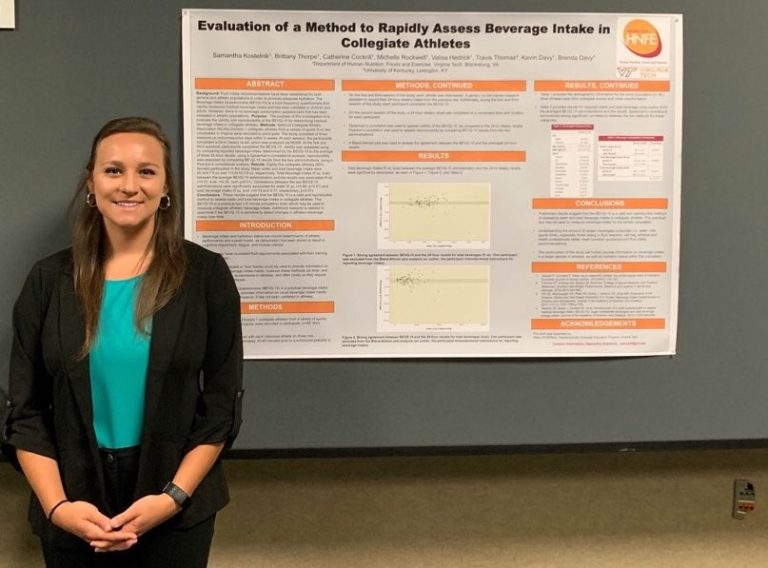Conference Presentation: Evaluation of a Method to Rapidly Assess Beverage Intake in Collegiate Athletes

By Samantha Kostelnik, PhD student of Water IGEP and Department of Human, Nutrition, Food & Exercise at Virginia Tech
During the last week of May, I had the opportunity to present a thematic poster at the Annual American College of Sports Medicine conference in Orlando, Florida. This experience was especially exciting because within my theme ‘Athlete and Nutrition’ I was one of 8 students selected to present in front of the audience. While there were many other novel research topics in the room, mine was the only poster utilizing a questionnaire to assess beverage consumption within this particular target population. For those of you who don’t know, I am using a beverage questionnaire, the BEVQ-15, which is a food frequency questionnaire that measures habitual beverage intake. It has been validated in children and adults, but has not yet been a validated method to measure beverage consumption in an athletic population.
After each student had time to provide a synopsis of their research, the floor was open to questions or comments from the audience. I had some great conversations and questions from other researchers and students. One of the conversations that I had with a researcher was related to the types of beverages that most athletes consume. Based on my experience with the athletes thus far, I have noticed that it really depends on the athlete’s preferences and types of training that they are performing. Another conversation was about the possibility of comparing the BEVQ-15 results to a SMART water bottle, which tracks how much of a beverage you consume from that bottle. While I think that this is an interesting idea, it might not be ideal or controllable. It would rely heavily on the participants to utilize the bottle for every beverage that they consume and they would need to record the types of beverages being consumed from the bottle. One of the questions that I received was related to whether or not I was also assessing hydration status in my participants. In fact, I am also assessing hydration status as an additional component to my dissertation; however, it was not included in this poster presentation. Overall, this was a great opportunity to present my research and network with other students and researchers in an interdisciplinary setting.


